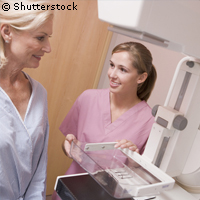Better communication to help cancer patients and experts
The EU has backed an initiative that will help patients and healthcare professionals improve their understanding of cancer prevention, treatment and care in Europe. The launch of a new, dedicated website is a key part of the ambitious project. EUROCANCERCOMS has been funded with EUR 1.2 million under the 'Science in Society' Theme of the EU's Seventh Framework Programme (FP7). An initiative of the European Institute of Oncology, the EUROCANCERCOMS project is led by both the European Cancer Organisation (ECCO) and the online journal ecancermedicalscience. ECCO president, Professor Alexander Eggermont, said that there is an urgent need in Europe to improve the communication lines between researchers, doctors and other healthcare professionals, and between these experts and patients themselves. 'Europe has an increasing number of cancer patients and worse outcomes for care, despite having better-quality clinical research than the US. Cancer survival is unacceptably variable in different European countries,' he said. He added that the poor communication amongst professionals involved in cancer care was highlighted in EUROCAN+PLUS, a project funded under the 'Life sciences, genomics and biotechnology for health' Theme of the Sixth Framework Programme (FP6). The researchers involved in that project found the communication issue to be one of the key reasons for the poor current cancer outcomes in Europe. In response to this need for greater dialogue, EUROCANCERCOMS will create a single, unified network representing diverse stakeholder groups. The project team will look at the issues hindering the communication process (e.g. examine the way the cancer research results are disseminated) and provide solutions (e.g. write policies to promote better practice). One of the milestones of the project is the launch of its own website, on which both patients and healthcare professionals are able to engage with project's activities as they take place over its two-year duration. The project's manager, Professor Richard Sullivan from King's Health Partners Integrated Cancer Centre at King's College London in the UK, said that in addition to the project being an opportunity to understand the key issues in cancer communication, it is also an opportunity to think of new ways of getting that information to the right people. 'This will be the first time that lots of very large groups involved in cancer in Europe have come together to improve cancer communications,' he said. 'There's no doubt that people of all ages and demographic profiles are using the Internet, including cancer professionals. We need to understand 21st century communications, particularly electronic communications.' For instance, even though patients are more likely to find information on the Web or through social networking sites, Professor Sullivan pointed out that the industry is still using the outdated marketing method of producing leaflets for doctors' surgeries. 'EUROCANCERCOMS will build on Europe's strengths in terms of existing cancer networks, cancer information websites and so on,' said Professor Sullivan. 'Europe is very diverse, but we will be able to network all these different sources of information together and that's what makes EUROCANCERCOMS unique. It's ambitious but we wouldn't be doing it if we didn't think we could deliver,' he added.
Countries
Italy



